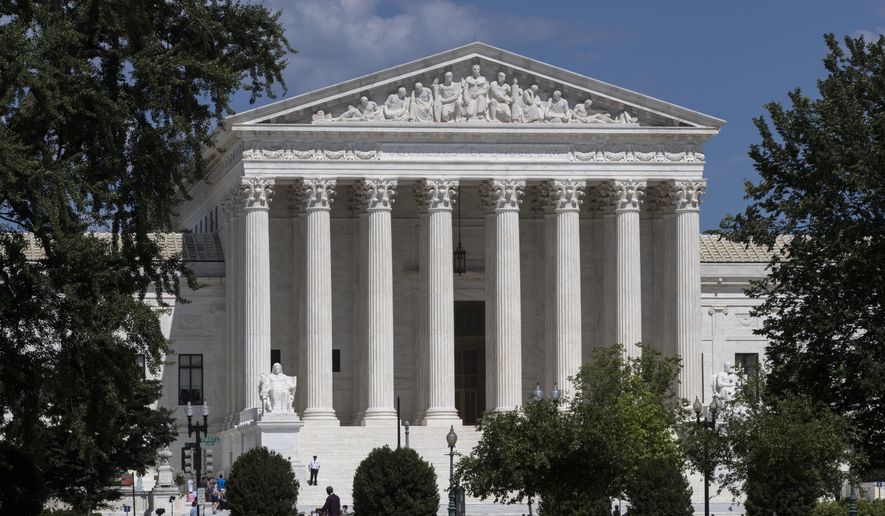The Supreme Court announced Monday that it was refusing to take up a case that could have expanded the prohibition on discrimination to include sexual orientation, declining to hear a case brought by a woman against her employer and leaving a legal jumble in place.
Federal law doesn’t mention sexual orientation, but some appeals courts have read that language into the law anyway, while others have refused to take that step. That’s created a split where discriminating against gay or lesbian workers is illegal under federal law in some states, but not in others.
The justices, without comment, declined to hear one of those cases, in which the 11th U.S. Circuit Court of Appeals ruled against a lesbian who said she faced discrimination.
The woman’s lawyer said the move wasn’t a “no,” but rather a “not yet,” predicting other cases will eventually force the justices to confront the thorny issue.
“By declining to hear this case, the Supreme Court is delaying the inevitable and leaving a split in the circuits that will cause confusion across the country,” said Greg Nevins, a lawyer for Lambda Legal representing Jameka Evans.
Ms. Evans said she was fired from her security guard job because of her sexual orientation, and sued claiming a violation of federal law which prohibits discrimination against an employee based on race, sex, religion or national origin.
The 11th Circuit rejected her claim, saying the law doesn’t explicitly cover orientation.
But the 7th Circuit ruled in April that even without explicit language, the law seems broad enough to cover orientation, since it’s essentially the same as sex discrimination.
“It is actually impossible to discriminate on the basis of sexual orientation without discriminating on the basis of sex,” Chief Judge Diane Wood wrote.
The 2nd U.S. Circuit Court of Appeals is also reviewing the issue.
“The public is on the right side of history; it’s unfortunate that the Supreme Court has refused to join us today, but we will continue to invite them to do the right thing and end this hurtful balkanization of the right of LGBT people to be out at work,” Mr. Nevins said.
It’s the latest gay rights issue to reach the courts, after the Supreme Court two years ago established a nationwide right to same-sex marriage and, last week, heard oral argument in a case about whether Christian tradesmen could refuse services to same-sex couples.
In the discrimination cases, the administration is divided. The Equal Employment Opportunity Commission filed briefs defending Ms. Evans and others who say the law’s spirit includes sexual orientation.
But the Trump administration’s Justice Department, has argued the other side. That marked a reversal from the Obama administration, when the department was on the same side as the EEOC.
Because the EEOC is an independent agency with litigation authority, its position doesn’t have to conform with the Justice Department.
Richard Epstein, a law professor at New York University, said he is unsure if the 2nd Circuit case is what the Supreme Court justices are waiting on before delving into the circuit split, but he said the LGBT discrimination issue will certainly come up eventually.
“It took three years to get the cake maker to the court,” said Mr. Epstein, referring to last week’s blockbuster case involving a Christian baker refusing to bake a wedding cake for a same-sex couple.
• Alex Swoyer can be reached at aswoyer@washingtontimes.com.




Please read our comment policy before commenting.